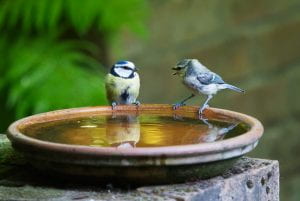Welcome to the Community!
I don’t really adhere to the new year, new you resolution-making approach to life, for a couple of reasons. First, as someone who works in academia, my “new year” feeling hits in September, not January. Second, personally, I’ve done the January enthusiasm-February fizzle cycle enough times to be hesitant to make any grand announcements that lead to nothing much.
That said, one of my resolutions for 2025 is to revitalize this blog. After all, another meaning of ‘resolution’ is the answer to a problem—so let’s think of this reboot as solving the problem of connecting to our community of practice.
In February 2023, I started writing a blog about my breast cancer journey. I found writing about my experience therapeutic, and that doing research to better understand my lived experience made me feel a little more in control, or at least more aware of what was happening and why. My cancer journey is (mostly) behind me now, but the writing bug still nibbles.
As a breast cancer patient, I had a unique insight into the disease and the treatments; as an educator, I have unique insight into the challenges and the rewards of the profession. I’ve been teaching for a long time: 20+ years at the Cégep level, and five at university. In that time, I added to my degrees in English Literature, completing my PhD in Education in 2020. I now teach Composition and Professional Writing at the undergraduate level at Concordia University, and in the Master Teacher program for Cégep teachers at the Université de Sherbrooke.

My academic research has often focused on teacher development—one burning question for me has always been “how do teachers in higher education learn how to teach?” University and college teachers often have no formal training in pedagogy beyond a seminar or workshop; our greatest learning typically comes from what Dan Lortie (1975) called the “apprenticeship of observation.” I’ve studied that topic – and lived it – for over 25 years now. So, I want to reemphasize this platform’s purpose, of creating a community of practice to support and learn from each other.
Are you part of the community? Yes. While my focus is on college and university teaching, that doesn’t mean you have to be a Cégep teacher or a university professor. Are you a teacher at a different level or in a different place? Are you a retired teacher willing to share some wisdom? Are you trying to get your first teaching gig? Are you a student eager to let us profs know what we can do better? If you are interested in teaching and learning, then you are indeed a member of this community.
This year, these are some of the topics I’d like us to grapple with:
- What makes a great syllabus and course plan?
- Learning online and/or in the classroom
- Spotting and surmounting student learning bottlenecks
- Feedback for better learning
- Integrating Universal Design into the English Lit & Comp classroom
- Understanding the college and undergrad student experience
- Mentoring and supporting grad students
- Navigating political tempests in our pedagogical teapots
- Generative AI from an academic disciplines perspective
- Experiential learning in the Humanities classroom
Which of these topics is the most appealing, exciting, infuriating, or mystifying for you? What else would you like to bring to the conversation? Share your thoughts in the comments below.
Subscribe to the blog for email updates, and connect with me on LinkedIn or by email at practicalreflectionsblog@gmail.com
